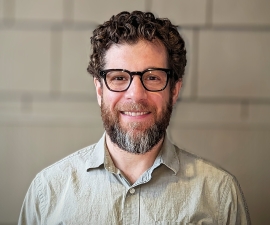

Research Bio
Aaron Fisher's research group—The Idiographic Dynamics Lab—engages in research at the individual level. They are currently interested in issues of Precision, Personalization, and Prediction in psychopathology and substance use.
Specifically, they are interested in extending the Precision Medicine paradigm to psychological and psychiatric domains—a Precision Behavioral Health model that complements biomedical approaches by leveraging behavioral data to customize and fine-tune behavioral interventions. They are interested in identifying actionable units of information at the behavioral level of analysis that will allow us to match patients, problems, and optimal interventions.
Additionally, they believe that the concept of personalization extends beyond treatment delivery and should encompass study design, data collection, and statistical analysis. Recent research in their lab has revealed marked heterogeneity in the temporal patterns, correlational structures, and predictive relationships in psychopathology and substance use.
Finally, given the heterogeneity in the timing and predictors of individual problems and behaviors, the group is currently working on methods for predicting individual behavior moment to moment, in order to identify when problems might occur. Building accurate prediction systems may allow researchers and clinicians to provide interventions when they are most needed (i.e. "just in time").
Research Expertise and Interest
Idiographic Science, Group-to-Individual Generalizability, Personalization, EMA, Time Series, physiology, Methods and Statistics
In the News
Minority Ph.D. students in STEM fare better with clear expectations, acceptance
Everything big data claims to know about you could be wrong
Featured in the Media
Women and underrepresented minorities are more likely to succeed professionally in STEM fields when their institutional cultures are welcoming and set clear, unbiased expectations, a Berkeley-led study has found. The indicators of success for the study included students' rates of publishing and securing postdoctoral and faculty positions. According to assistant psychology professor Aaron Fisher, the study's lead author: "Our study strongly indicates that the onus should not fall on minority students to make changes to succeed in STEM settings. ... Institutional changes that make students feel welcome and provide clear guidelines and standards for performance are optimal ways to ensure the success of all students." The study was conducted by researchers at Berkeley, UCLA, Stanford, and Caltech -- institutions which together educate an estimated 10 percent of the nation's underrepresented minority doctoral students in science and engineering. This story originated at Berkeley News.
Women and underrepresented minorities are more likely to succeed professionally in STEM fields when their institutional cultures are welcoming and set clear, unbiased expectations, a Berkeley-led study has found. The indicators of success for the study included students' rates of publishing and securing postdoctoral and faculty positions. According to assistant psychology professor Aaron Fisher, the study's lead author: "Our study strongly indicates that the onus should not fall on minority students to make changes to succeed in STEM settings. ... Institutional changes that make students feel welcome and provide clear guidelines and standards for performance are optimal ways to ensure the success of all students." The study was conducted by researchers at Berkeley, UCLA, Stanford, and Caltech -- institutions which together educate an estimated 10 percent of the nation's underrepresented minority doctoral students in science and engineering. This story originated at Berkeley News.


